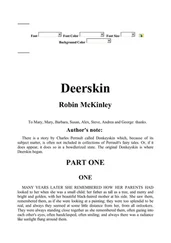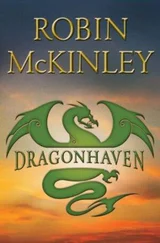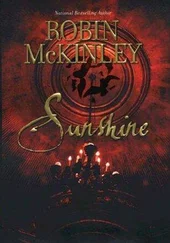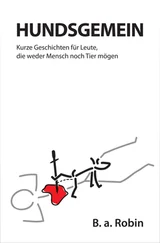Robin McKinley - Water
Здесь есть возможность читать онлайн «Robin McKinley - Water» весь текст электронной книги совершенно бесплатно (целиком полную версию без сокращений). В некоторых случаях можно слушать аудио, скачать через торрент в формате fb2 и присутствует краткое содержание. Год выпуска: 2002, ISBN: 2002, Издательство: Firebird, Жанр: Старинная литература, на английском языке. Описание произведения, (предисловие) а так же отзывы посетителей доступны на портале библиотеки ЛибКат.
- Название:Water
- Автор:
- Издательство:Firebird
- Жанр:
- Год:2002
- ISBN:9780142402443
- Рейтинг книги:4 / 5. Голосов: 1
-
Избранное:Добавить в избранное
- Отзывы:
-
Ваша оценка:
- 80
- 1
- 2
- 3
- 4
- 5
Water: краткое содержание, описание и аннотация
Предлагаем к чтению аннотацию, описание, краткое содержание или предисловие (зависит от того, что написал сам автор книги «Water»). Если вы не нашли необходимую информацию о книге — напишите в комментариях, мы постараемся отыскать её.
Water — читать онлайн бесплатно полную книгу (весь текст) целиком
Ниже представлен текст книги, разбитый по страницам. Система сохранения места последней прочитанной страницы, позволяет с удобством читать онлайн бесплатно книгу «Water», без необходимости каждый раз заново искать на чём Вы остановились. Поставьте закладку, и сможете в любой момент перейти на страницу, на которой закончили чтение.
Интервал:
Закладка:
Tamia was happiest looking after her family’s animals. They had two cows, one to provide milk for themselves, and the second for her mother to make cheeses to sell; and six sheep, whose fleeces they sold to the weaver and whose lambs they sold to the butcher. As soon as Tamia was tall enough to steady the most phlegmatic of the ewes between her legs, she began learning to shear; but her stepfather took the lambs to the butcher. They also had a small flock of chickens, and only when Tamia was collecting the eggs were none of them missed.
And, until Tamia was twelve, they had had a pony, Columbine, who pulled a plough over their little quarter-hectare of cropland, and who was hired out, with her plough, to other farmers of smallholdings. Columbine had been bought and trained to her work by Tamia’s father, but it was the money on Columbine’s hiring that enabled Tamia’s stepfather to spend so much of his time arguing with the local council over how the town should be run, and how much the Guardians’ token should be. “I feed and house seven children on the tiniest fraction of what we pay one Guardian every year! Magic is magic! It has no mouth to put food into, no back to be sheltered from storms!” was one of his favourite protests.
But Columbine had been old when Tamia’s mother had remarried, and one cold winter morning when Tamia was twelve, the pony had lain down in the shed she shared with the cows, and refused to get up again. She died that night, with Tamia’s tears wet on her neck, because Tamia had refused to leave her. Tamia caught a severe head-cold as a result, and had to go to bed for a sennight, and her stepfather was very angry. But Tamia had lost her best friend, even if she had been only a pony. It had been Tamia who fed and brushed her, and tended her tack, and led her to her other jobs, and fetched her home again. Columbine settled down as soon as she saw her work ahead of her, but she could be positively balky if anyone but Tamia tried to lead her through street traffic.
When Tamia had been a little girl, she had thought the Guardians must be gods, or at least like gods; by the time she entered her teens, she knew they were enough like ordinary people to need to eat and sleep and protect themselves against the winter, and that certain traders brought them what they needed, paid for by the token levied against every islander from birth. (The Guardians had simple tastes—so went the stories—in food and clothing; in everything, in fact, except their desire for gold; but it was considered bad luck to discuss this. Even Tamia’s stepfather was carefully unspecific about where most of the yearly token went.) She also knew that occasionally some Guardian descended from the mountains to one or another of the seaside villages and wandered among its inhabitants for a day, for reasons known only to themselves, frightening everyone they said “Good morrow” to, even members of the local council. Tamia wondered how you recognised a Guardian. She had seen Guardians’ traders occasionally, had seen how they seemed to carry silence and mystery with them; but then, in a village as small as hers, every stranger was recognisable as a stranger, and treated as such.
But Tamia hadn’t liked listening to her stepfather speak against the Guardians’ token, nor to her neighbours debating when Western Mouth would choose an apprentice. It seemed to her rude. So she stopped listening. She had almost forgotten about Western Mouth’s apprentice when the trader came to their door one evening.
Tamia knew him and his pony by sight, but she had never exchanged words with him—though she had, once or twice, with the pony. He knocked on their door at twilight, when Tamia and her mother had their hands fullest, putting children to bed. Tamia heard her stepfather open the door, and speak sharply to whoever stood there, and spared a fragment of her attention to wonder who it was, as she sought night-gowns crushed into dark corners, faced torn-to-bits beds, and grabbed small shrieking bodies attempting to flee the inevitable. Her stepfather would welcome any of his friends, and her mother’s friends knew better than to stop by at this time of day. Who could it be?
Her stepfather had to say her name twice before it registered, and then Tamia found she had no voice to respond with. “Yes, Stepfather?” she managed at last; and the child in her arms stopped struggling in surprise. Everyone in the family, even the littlest, knew that Tamia was of no importance.
“This man has a message for you.”
Tamia set Miz on her own legs, and stepped timidly forward. “Good evening,” said the trader. “I beg pardon for disturbing you. I have a message for you from the Guardian of Western Mouth: that if you are willing, she would have you to apprentice. She would be glad to see you as soon as you are able to come.”
The trader paused, but Tamia was having trouble taking it in. Her fourteenth birthday had been last week, but little attention had been paid to it; her mother had wished her happy birthday, and given her a kiss. Fourteen was traditionally the age that Guardians took their apprentices. She stared at the trader’s hat, and the long curling red feather that hung down from it. His pack leaned against the door-post, and she could see the pony in the door-yard. Its ears were pricked towards her, as if waiting for her to speak. The trader went on, gently, softly, as if his words were only for her, and it did not matter if any of the rest of her family heard him or not. “Do you know the way to Western Mouth?”
Tamia’s village lay at the edge of the foothills of the Cloudyheads. It was the last village on one of the main traffic routes from the centre of the island to the sea, reached through a narrow gap in the mountains about half a day’s brisk walk distant. It was not a very promising gap—there were better routes both north and south, but they were much farther away—and it was passable enough that Tamia’s village had a good trade in dried ocean-fish and seaweed for finished lumber and hides, and what surplus crops the steep flinty farmland produced, and that Tamia’s mother’s cousin, who had married a fisherman, could come for a visit now and again.
A little north of that route was a narrow path that broke off from the main way and darted fiercely uphill, joining the long trail or series of trails that finally linked all the mountains in a ragged circle, but here made its way along the eastern edge of the Flock of Crows towards the Eagle, the tallest of the western Cloudyheads. Tamia had never seen anyone use that track, nor did she remember anyone telling her where it went, but she knew that it would lead to Western Mouth the way she knew that cheese was good to eat, or that the old man who lived at the edge of town and raised spotted ponies could give you a love-charm if you asked, and if he felt like it. It was just something everyone knew. “I—I think so,” she said to the trader, although her voice did not sound like her own. “It is the path running up towards the Eagle, is it not?”
“Yes,” replied the trader, and nodded his head to her respectfully, making his red feather gambol across his forehead. “At the last turn you must make to reach the Eagle, there is a trader’s sign”—and here he took a bit of wood out of his pocket and showed her the sign scratched on it. And then he turned and picked up his pack and left them. That brief nod of his head seemed to hang in the air of the cottage after the man had left, as if a pole had been stuck in the floor at that place, and a banner tied to its top, declaring Tamia’s emancipation. Tamia ducked round that place, as if something there blocked her way; she half-imagined the sparkle of a tiny pennoncel there, out of the corner of her eye. It was long and curly and red. In the silence she returned to Miz, who had stood staring, mouth open, one arm half in its sleeve and the other hand caught under her chin by her nightgown’s collar, and began to pull her straight. The other children sighed and moved; there was a wail from Issy, who often wailed. “When will you go?” were her mother’s first words. “Tomorrow is washing-day.”
Читать дальшеИнтервал:
Закладка:
Похожие книги на «Water»
Представляем Вашему вниманию похожие книги на «Water» списком для выбора. Мы отобрали схожую по названию и смыслу литературу в надежде предоставить читателям больше вариантов отыскать новые, интересные, ещё непрочитанные произведения.
Обсуждение, отзывы о книге «Water» и просто собственные мнения читателей. Оставьте ваши комментарии, напишите, что Вы думаете о произведении, его смысле или главных героях. Укажите что конкретно понравилось, а что нет, и почему Вы так считаете.












